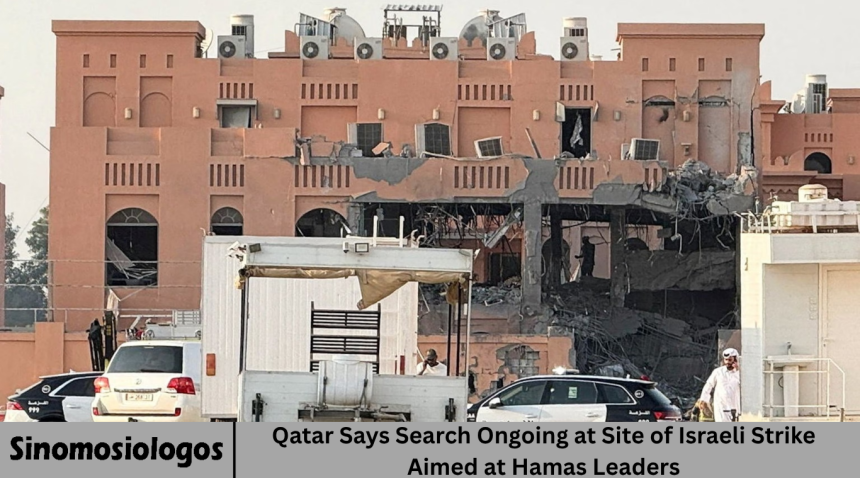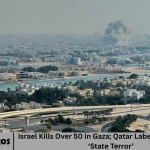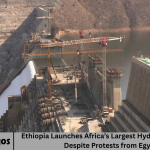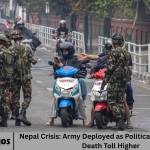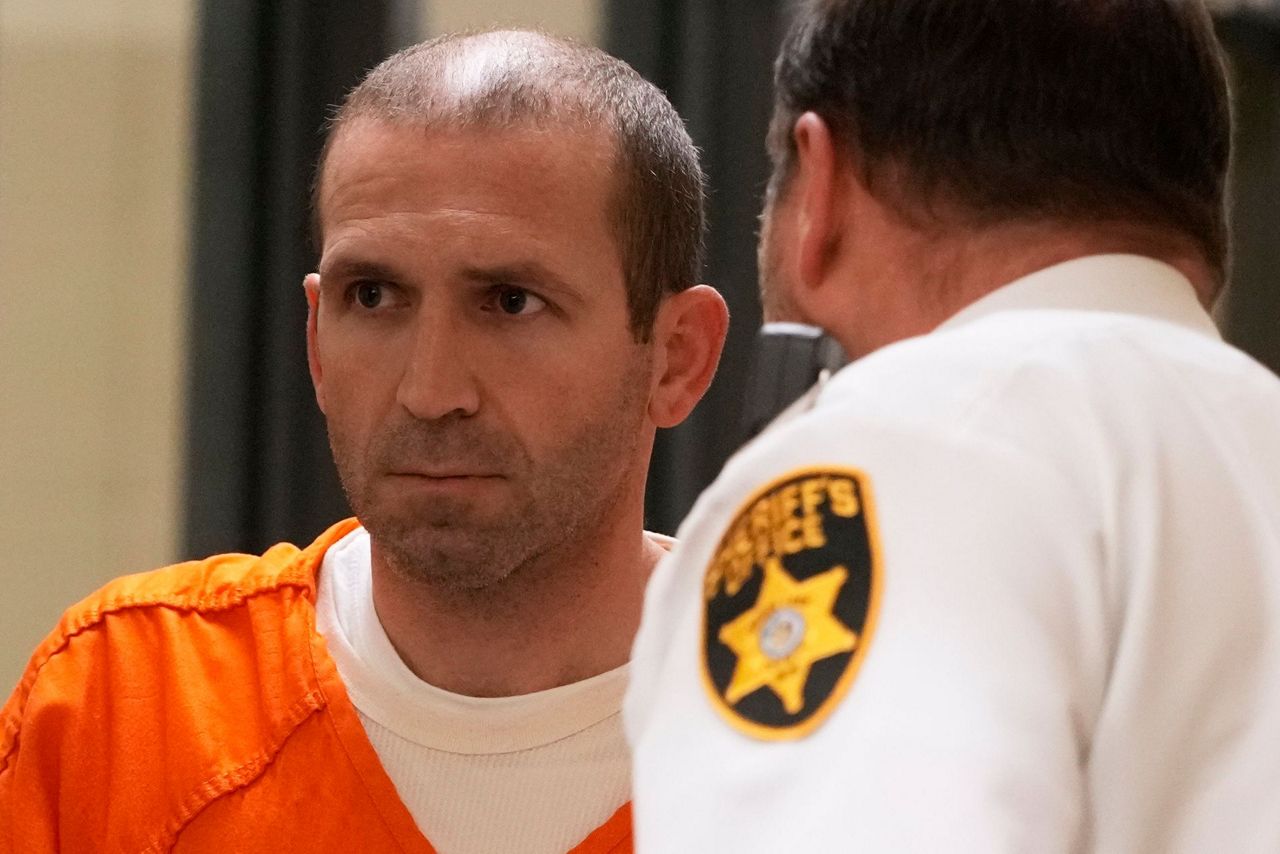Qatar has confirmed that search efforts are still ongoing at the site of a recent Israeli airstrike in Doha. The strike reportedly targeted Hamas political leaders. Authorities in Qatar are working to recover human remains, locate missing individuals, and understand the full extent of the damage. The incident has caused significant political tension and raised new concerns about regional diplomacy and security.
This article explains what is currently known about the strike, what Qatar has said about the search operation, and how this event is affecting international relations and ongoing peace efforts.
The Strike in Doha: What Happened
On September 9, 2025, an Israeli airstrike hit a building in Doha, the capital of Qatar. According to reports, members of Hamas were holding a meeting at the location to discuss ceasefire and hostage negotiations. The strike caused destruction and loss of life.
While some lower-ranking Hamas members and a Qatari security officer were confirmed killed, senior Hamas negotiators appear to have survived. Israel described the operation as a targeted strike against what it called “terrorist leaders.” Qatar, however, strongly condemned the strike as a breach of its national sovereignty.
Ongoing Search and Investigation in Doha
Qatar has deployed search and forensic teams at the strike site. These teams are working to identify bodies, locate missing persons, and analyze the scene.
So far, the following has been confirmed:
-
Three lower-level Hamas members have been identified among the dead.
-
One Qatari security officer was also killed in the blast.
-
Two other individuals remain unaccounted for.
-
Human remains were found across different parts of the site, making identification difficult.
Qatari officials say the investigation is ongoing. They have not officially confirmed the fate of senior Hamas official Khalil al‑Hayya, who has not appeared in public since the incident.
Reactions from Qatar and Hamas
Qatar has strongly condemned the Israeli strike, calling it a violation of international law and a serious attack on its sovereignty. Qatari leaders have called for regional unity and indicated that they are reviewing their future role as a mediator in the Israeli-Palestinian conflict.
Hamas has stated that none of its top political leaders were killed. The group said that while some members were lost, the leadership remains intact. They described the strike as a failed assassination attempt.
Qatar’s role is especially sensitive, as it has served as a key mediator in hostage and ceasefire talks involving Hamas, Israel, and other nations.
Israeli Response
Israel has defended the airstrike. According to Israeli officials, the operation was based on intelligence suggesting that senior Hamas officials were gathered at the site. They argued that such leaders are responsible for planning attacks against Israeli civilians and military personnel.
Israeli leaders also sent a message to other countries, warning that any nation that hosts terrorist leaders may face similar consequences. However, some reports from Israeli media have raised concerns about whether the mission achieved its goal, especially since no high-ranking Hamas officials were confirmed killed.
Diplomatic Fallout and Regional Responses
The airstrike has caused serious diplomatic tensions. Many countries in the region have expressed concern and criticized the operation. The fact that Israel carried out a military strike inside Qatar—a country that has not been directly involved in armed conflict—has shocked many observers.
Qatar is now working on its diplomatic response. This could include formal complaints at international levels and possible changes to its role in mediation. However, Qatari leaders have said they will continue to work toward peace and will not be deterred by the attack.
Impact on Mediation and Negotiations
The strike occurred during a period when peace negotiations were ongoing. Hamas leaders were reportedly in Doha to discuss proposals related to a ceasefire and the release of hostages. By targeting the location of such talks, the strike could affect future diplomacy.
Countries like the United States, Egypt, and Qatar have been working to keep lines of communication open between Israel and Hamas. Qatar’s role as a host and mediator has been central. However, after this strike, its neutrality could be questioned.
The future of these negotiations now appears uncertain.
Challenges in Confirming the Strike’s Success
One of the major difficulties in evaluating this operation is the lack of clear evidence. The destruction caused by the airstrike has made it hard to confirm who was present and who was killed. Some remains have yet to be identified, and there is no confirmation about certain key individuals.
It is possible that the intended targets were not present or managed to escape. Without public appearances or official statements from Hamas leadership, uncertainty continues.
This lack of clarity may allow both Israel and Hamas to claim different versions of what happened.
What Happens Next
As Qatar continues its investigation, several outcomes are possible:
-
Qatar may take diplomatic or legal action against Israel through international bodies.
-
The Qatari government could change its approach to hosting Hamas or participating in future talks.
-
Regional countries may increase pressure on both Israel and Hamas to prevent future attacks and keep diplomacy alive.
-
Peace negotiations could be delayed or made more difficult due to reduced trust.
-
Hamas may shift the location of future meetings to other countries seen as more secure.
The situation remains sensitive, and the next few days and weeks will likely determine how much impact this strike has on regional politics and negotiations.
Frequently Asked Questions
What was the purpose of the Israeli strike in Qatar?
Israel says the strike was meant to target Hamas leaders responsible for planning attacks. The operation took place in Doha, where a Hamas meeting was reportedly being held.
Who was killed in the strike?
Qatar has confirmed the deaths of three Hamas members and one Qatari security officer. Two people remain missing, and the search is ongoing.
Did the strike kill senior Hamas leaders?
As of now, there is no official confirmation that top Hamas leaders were killed. Some reports say the targets may have survived.
How did Qatar react?
Qatar condemned the strike as a violation of its sovereignty. It is continuing its investigation and may take diplomatic action.
Will this affect peace negotiations?
Yes. The strike may complicate future negotiations and harm trust between the involved parties. Qatar’s role as a mediator may also be affected.
Conclusion
The Israeli airstrike in Doha targeting Hamas leaders has triggered an international controversy. While the full outcome of the strike is still unknown, Qatar continues its search and investigation at the site. The incident has brought new attention to the risks of military action in neutral countries and the challenges of maintaining peace negotiations during conflict.
Qatar now finds itself at a crossroads—balancing its role as a mediator with the need to respond to what it views as a serious violation. As more details emerge, the world will be watching how this event influences the broader conflict and the chances for peace in the region.


